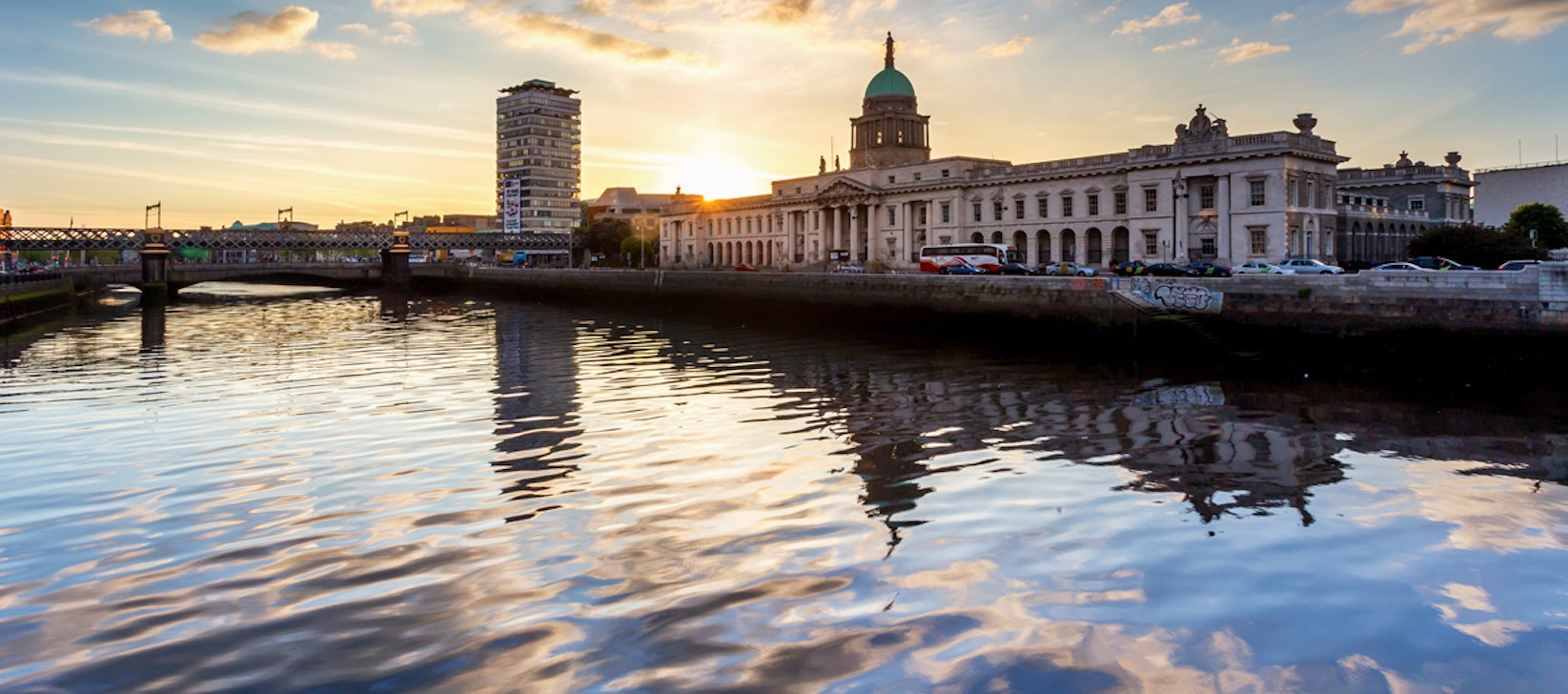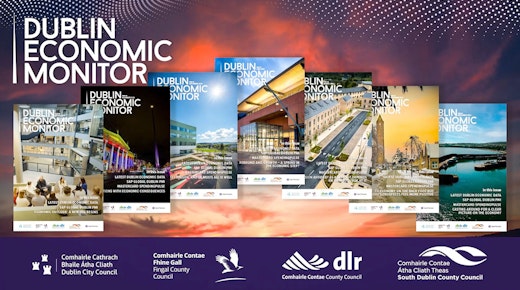Dublin’s economy is at a critical juncture. Growth is strong but Brexit is posing a unique and significant challenge to the region.
There are of course major uncertainties regarding the future EU-UK relationship. However, Brexit is just one of the external threats facing Dublin. Now is the time for action to make the metropolitan region more resilient and globally competitive.
First, Brexit was always an exercise in damage limitation. An orderly exit of the UK from the EU would avoid a profoundly disruptive no-deal cliff edge. The new deal agreed in October goes some distance toward mitigating the potential risks to the all-island economy and supply chains, but we will inevitably end up in a worse place than where we are now.
Dublin’s four local authority areas are, as expected, among the areas least exposed to a no-deal Brexit. The region’s diversified enterprise is the primary factor insulating its direct exposure to Brexit. The most exposed sectors are concentrated in the most economically disadvantaged parts of the country. In the short-to-medium term, this could threaten Project Ireland’s stated ambition to re-balance growth away from the Dublin metropolitan area, with the potential for overheating the remainder of Dublin’s economy.
Approximately 6.2% of total employment across Dublin City, Fingal, South Dublin and Dún Laoghaire-Rathdown is in the sectors most exposed to Brexit. In nominal terms, Dublin City has the second highest number of jobs in the exposed sectors, at 14,000 but is still less than 6% of employment in the local economy. The tourism and hospitality sector in Dublin is particularly exposed to Brexit, with exchange-rate pressures already impacting visitor numbers from the UK.
Dublin’s economy will continue to grow through a period of great uncertainty. Its economy is close to full employment, with moderate inflation and the strongest increases in real living standards since the late 1990s. Dublin will increasingly need to lobby at national and European levels for policy supports and investment in a post-Brexit world. We urgently require infrastructure upgrades and housing in order to compete for companies relocating from the UK but also to address our current constraints.
Global connectivity will of course present issues for Dublin due to Brexit. This has implications for air, sea, road and rail access. Planning has been ongoing over the past three years to reduce potential disruption to travel, trade and supply-chains. Our port and airport are assets of strategic national infrastructure, underpinning regional development. We need to ensure they can continue to grow and maintain global accessibility for the region.
Additionally, there is the unique challenge in terms of maintaining non-physical connectivity post-Brexit. This includes continuing efforts to prioritise the Dublin-Belfast economic corridor. Dublin’s economy is strongly rooted in global services. Brexit throws up new challenges to be addressed. For example, a no-deal Brexit would create a range of new barriers to the transfer of data between the EU and UK. This will be complicated further by the treatment of services in any future EU-UK trading arrangement.
Brexit is but one external threat to Ireland’s, and by extension Dublin’s economy. Rising trade tensions place specific pressures on small, open economies. The global economy is also close to the top of the business cycle. These factors are now cutting through to the real economy in Europe, with a slowdown in growth across Europe predicted in 2020. This is also likely to be the case for Dublin.
That’s not all. Impending international tax reform is likely to cause the biggest change in over a century in terms of how companies are taxed globally. Ireland will have to adapt, rethink and reimagine our business model. Dublin’s ability to attract skills and investment will become even more intertwined with our future economic success. Consequently, Dublin must become more competitive, resilient, and inclusive.
Talent is mobile. It is not just businesses that invest in Dublin, people do too. We must recognise that urban planning necessitates building communities, not just housing. The region’s distinct advantage as a global hub for education must be supported. All of this impacts a city’s ability to attract or retain people. However, this is an area of underperformance in recent years. In 2010, for example, Dublin was ranked as the 26th most liveable city in the world. Today, Dublin is 33rd. This represents a failure of spatial planning to connect the quality of life and place better.
There is no doubt that Dublin will have to work harder in terms of winning new investment. We must also grow our indigenous enterprise base. Ireland is an easy place to start a business but a difficult country in which to grow one. Dublin must be a location of choice for entrepreneurs. The four local authorities have a key role to play in the future economic development.
Climate change is the single greatest challenge humankind faces today. The scientific evidence is unequivocal. The country must take decisive action to decouple emissions and economic growth and build the foundations of a sustainable, competitive low carbon economy. The scale of this challenge can be daunting. It won’t be easy and difficult choices will have to be made. It will require substantial investment, the deployment of new technologies and big changes in everyday human behaviour.
It is a time of global uncertainty. There are challenges and opportunities in equal measure. Dublin must lead the way in terms of fundamentally and creatively rethinking how we grow our economy, plan future development and become more resilient.






